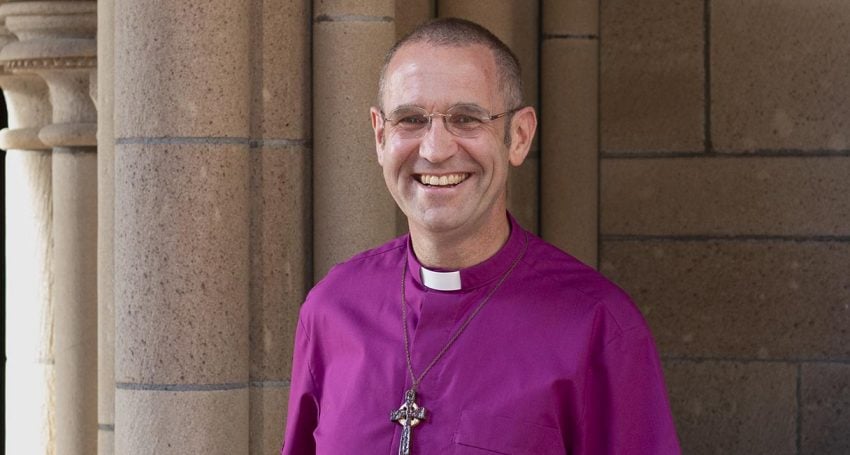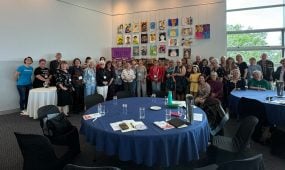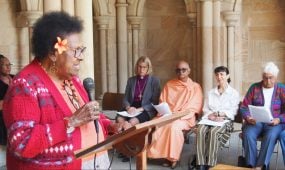What title would you give our collective story?
Reflections
“As a Church, our values have emerged from the Christian stories. So knowing our stories helps keep us grounded and consistent in our values. Do we know our stories as well as we know the associated values?” asks Bishop John Roundhill

What title would you give our collective story if you were to write humanity’s biography? What word might best capture what the story is all about?
How about the word, “Failure”?
Many of us never thought we would see war in Europe again. My own parents grew up in the Second World War. Serious commentators are describing the current situation being the nearest to World War III since 1945.
Jesuit priest and chief military chaplain for the Ukrainian Greek-Catholic Church Andriy Zelinskyy wrote in last week’s Economist magazine:
“We, intelligent and responsible citizens of the global village, must ask ourselves how such levels of inhumanity are possible in Europe in the 21st century. At this moment in our history we need answers—as does our common future. It may become even a new mission for today’s intellectuals to seek and find out how we arrived at this moment. They may uncover areas of politics or sociology that we have forgotten in the decades since the great wars of the last century. Our institutions and organisations are weaker than we thought and this has cost human lives. A crucial question remains: “Where have we failed?”
He might give the story of the West the title, “Failure”.
He then goes on to write, “The war in Ukraine uncovers a difficult question: “What do we really value?”
This is an important question for all of us in the Church.
To answer this question, I think we need to know our stories.
As a Church, our values have emerged from the Christian stories. So knowing our stories helps keep us grounded and consistent in our values. Do we know our stories as well as we know the associated values?
Advertisement
Western Christianity has just celebrated Easter over the weekend.
Easter is the foundation story for all Christians. It is the story of love winning in the most extraordinary of circumstances. It shows us that death does not have the final word in the book of life. The Easter story also shows us how God takes the initiative to restore our relationships with each other and with God.
It is much more than the story of an empty tomb. It is a big story that has impacted much of Western culture.
How does the Easter story shape you? How do you tell that story for yourself? What are your values?
These words from Cannon Hill Anglican College’s hymn, which I sang recently with the school’s community, are especially prescient at this time:
“Cure the world’s warring madness,
bend our pride to your control.
Shame our wanton selfish gladness,
rich in things and poor in soul.
Grant us courage, grant us compassion,
lest we miss your kingdom’s goal.”
Advertisement
I pray that each of these may be granted.
If you looked up at the sky last week you would have seen a full moon. The date of Easter in Western Christianity is tied to the first full moon, known as the Paschal Full Moon, on or after the calendar year’s first Equinox.
What was especially remarkable last week was that three of the world’s major religions marked major observances. Jews celebrated the Passover festival, Muslims kept Ramadan and Western Christianity observed Holy Week. So all around the world, people of different faiths prayed for peace as each of these three traditions kept their own observance.
There can be a better world. And we need to work for it with courage and compassion. It, too, has a story – what name would you give it?





